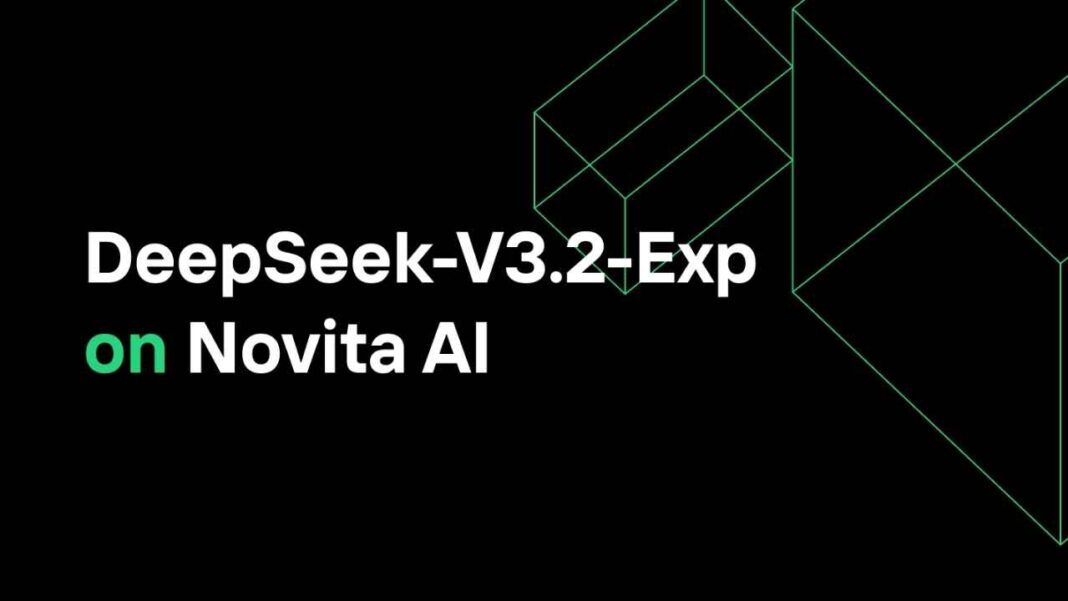DeepSeek V3.2-Exp: Artificial intelligence has been growing at an incredible rate, with new models and frameworks coming out every few months. DeepSeek has slowly gained attention in this field because of its open-source approach and focus on making large-scale AI models work better. The recent release of DeepSeek V3.2-Exp marks another important step forward. It claims to be a powerful stopgap until DeepSeek V4 comes out.
Unlike many flashy model launches that focus on speed or size, the V3.2-Exp focuses on computational efficiency, sparse attention mechanisms, and practical scalability. This might make it easier and cheaper for businesses, researchers, and developers around the world to work on AI.
What is DeepSeek V3.2-Exp?
The V3.2-Exp is a better version of the old DeepSeek V3 model. It is a “experimental” upgrade that fills the gap between what the current version can do and what the next version, V4, hopes to achieve.
DeepSeek’s research has been open and honest, unlike closed models like GPT-4 or Gemini. This has allowed the larger AI community to look into, build on, and test it. The tag “Exp” shows that this model is experimental and is meant to test improvements in:
• Simple ways to pay attention (to better handle long sequences)
• How well it works for training large language models (LLMs)
• Cutting costs for energy and infrastructure
• Adding more domain-specific and multilingual apps that can be used
In short, the goal of DeepSeek V3.2-Exp is to make things run more smoothly without losing performance.
Important Changes in V3.2-Exp
DeepSeek has focused on solving some of the biggest problems that come up when deploying and training AI models. The main changes are as follows:
1. Not enough focus on long-term contexts
Traditional transformers have trouble scaling because attention goes up by a factor of four for every extra sequence. DeepSeek’s sparse attention mechanism lets the model handle longer contexts well by using less computation. Because of this, it can handle long documents, code bases, or even conversations better without costing too much.
2. How well the computer works
DeepSeek V3.2-Exp was made to work with less hardware. Early tests show that it can work as well as or better than other models of the same size while using much less processing power and energy. This is necessary to make advanced AI training cheaper and less harmful to the environment.
3. More options for fine-tuning
One of the best things about V3.2-Exp is that it has a modular architecture. This makes it easier for researchers and businesses to improve the model for tasks that are specific to a certain field, like law, healthcare, or finance.
4. Growth into Many Languages
DeepSeek has also improved support for multiple languages, which helps low-resource languages that mainstream models often ignore. This could make AI available to everyone around the world, especially in places where English-based models don’t work well.
5. V4 as a stepping stone
The V3.2-Exp is not the final goal; it is a testbed for the V4 innovations. DeepSeek can get feedback from researchers and developers on the design of this model before it is released to the public by making it available ahead of schedule.
Why AI Development Needs to Be Efficient
DeepSeek’s focus on efficiency addresses one of the biggest problems in the AI industry: cost. Many AI start-ups are trying to make bigger and more powerful models.
Training a huge model like GPT-4 or Gemini Ultra takes a lot of money and a lot of GPU clusters. A lot of small businesses, research labs, and start-ups can’t pay these kinds of bills.
DeepSeek V3.2-Exp optimizes attention mechanisms and computational needs:
• Cuts down on training costs so that smaller teams can be more creative.
• Cuts down on energy use, which helps AI stay in business.
• Makes advanced models easier to get to, so even small businesses can use them.
This change could have a big impact on how quickly AI improvements are put into use in the real world.
Possible Uses for DeepSeek V3.2-Exp
The changes in V3.2-Exp create exciting new possibilities in many fields. Some possible uses are:
- Natural Language Processing (NLP)
• Better summaries of long documents
• More coherent conversations with chatbots
• Better translation for languages that aren’t spoken as much
- Healthcare
• Helping doctors by going through a lot of medical literature
• Helping make patient summaries or research insights
- Legal and Compliance
• Reviewing contracts and regulatory documents with long context support
• Efficient domain-specific fine-tuning for legal teams
- Education
• Tutoring systems that work in more than one language
• Adaptive learning platforms that are best for different types of curricula
- Software Development
• Code assistants that can handle bigger codebases
• Using long-context understanding to cut down on hallucination
The V3.2-Exp model is a good choice for industries where both cost and accuracy are important because it is both efficient and adaptable.
In conclusion
The release of DeepSeek V3.2-Exp is a big step forward in the field of AI. DeepSeek is pushing the limits of what is possible without relying solely on brute-force scaling by focusing on sparse attention, computational efficiency, and fine-tuning flexibility.
While its raw power may not yet rival that of the highest-end models, it embodies an alternative vision for AI: one that is collaborative, economical, and accessible. If V3.2-Exp is successful in the real world, it could lead to the development of the more powerful and advanced DeepSeek V4, which is expected to use what it has learned to create a truly next-generation AI model.

